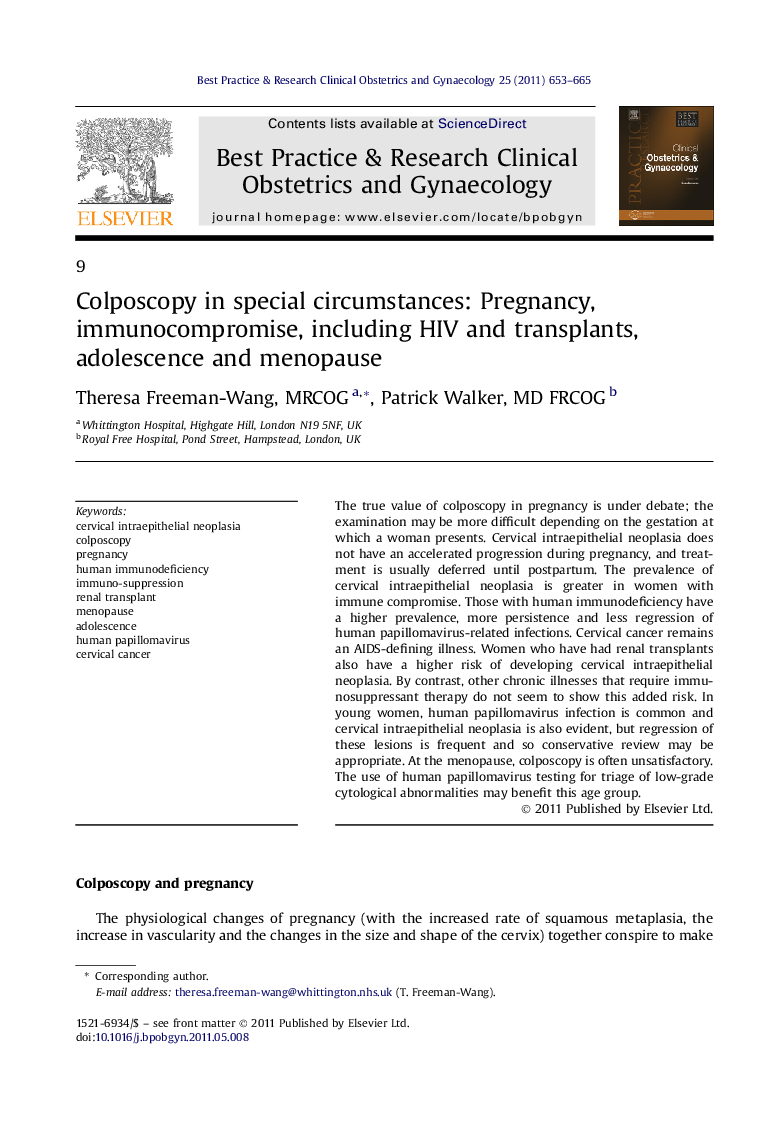| Article ID | Journal | Published Year | Pages | File Type |
|---|---|---|---|---|
| 3907540 | Best Practice & Research Clinical Obstetrics & Gynaecology | 2011 | 13 Pages |
The true value of colposcopy in pregnancy is under debate; the examination may be more difficult depending on the gestation at which a woman presents. Cervical intraepithelial neoplasia does not have an accelerated progression during pregnancy, and treatment is usually deferred until postpartum. The prevalence of cervical intraepithelial neoplasia is greater in women with immune compromise. Those with human immunodeficiency have a higher prevalence, more persistence and less regression of human papillomavirus-related infections. Cervical cancer remains an AIDS-defining illness. Women who have had renal transplants also have a higher risk of developing cervical intraepithelial neoplasia. By contrast, other chronic illnesses that require immunosuppressant therapy do not seem to show this added risk. In young women, human papillomavirus infection is common and cervical intraepithelial neoplasia is also evident, but regression of these lesions is frequent and so conservative review may be appropriate. At the menopause, colposcopy is often unsatisfactory. The use of human papillomavirus testing for triage of low-grade cytological abnormalities may benefit this age group.
